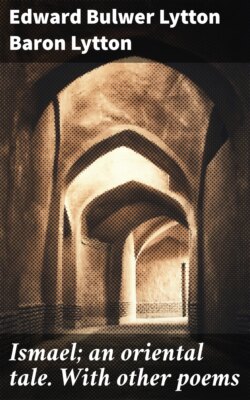Читать книгу Ismael; an oriental tale. With other poems - Edward Bulwer Lytton Baron Lytton - Страница 6
На сайте Литреса книга снята с продажи.
ADDRESS
TO WALTER SCOTT, ESQ.
ОглавлениеTable of Contents
Written at Thirteen Years Old.
To thee, O Scott, I tune my humble lyre,
Who first inflam’d me with a Poet’s fire.
Well may fair Scotland glory in the fame,
That waits thy verse, and crowns thy radiant name:
The child of Nature, all thy strains impart
A charm more lasting than the works of Art.
How oft in sweet delirium past the day,
When pond’ring o’er thy richly-varied lay,
To view the page with retrospective eye,
Of deeds long done, of years long glided by.10
E’en now, methinks, I view, by Fancy’s pow’r,
Th’ unearthly scene of Melross’ mould’ring tow’r[1]! Now, feel each vein, in icy horror bound; Hark! the dire curse re-echoes o’er the ground[2]— The regal banquet[3], or the mazy dance, Alternate court the raptures of my glance! In lasting colours all, thy pencil drew, And held their beauties to our wond’ring view. The first of Phœbus’ vot’ries, thou, to show How sweetly-wild the streams of Verse can flow;20 Thy dazzling genius, to the future age, Shall shine resplendent in the Muse’s page: For who, like thee, each pow’r of soul can bind, And wake the dull strings of the folded mind? Awful, or pensive, soften’d, wild, or gay, Oh! who, like thee, can waft the sense away In dreams divine?—and who so blind can be E’er to prefer that wayward Bard[*] to thee, Sublime in what?—in what!—Impiety! Yes! when Oblivion o’er his name at last,30 Her endless and impervious shroud shall cast, Britons shall mark with proud, enraptur’d eye, Thine are the lays that shall not, cannot die.
